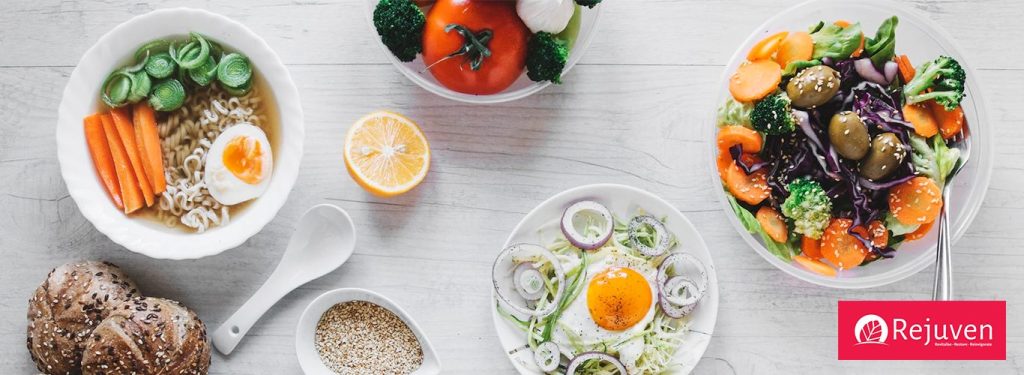
Why it is vital to maintain a healthy diet after post-surgery
Eating a healthy diet after surgery is crucial for proper recovery. It provides essential nutrients necessary for tissue repair and healing, boosts the immune system to prevent infections and reduces the risk of blood clots.
A balanced diet that is low in fat, sugar, and sodium can also help manage post-surgery symptoms such as pain, swelling and nausea. Additionally, a healthy diet can aid in weight management, especially important for those who have had weight loss surgery. It’s best to work with a medical practitioner, nutritionist, or dietitian to develop a personalized diet plan after surgery.
1. Healing and recovery
Adequate protein and essential vitamins and minerals are necessary for the repair and rebuilding of tissue damaged during surgery. Eating a balanced diet can help the body heal and recover more quickly.
- Protein is an essential nutrient that is required for the repair and rebuilding of tissue damaged during surgery. It is a building block for the body’s cells and plays a vital role in the healing process. Adequate protein intake can help to promote wound healing, reduce inflammation, and improve muscle strength. Good sources of protein include lean meats, fish, poultry, eggs, dairy products, legumes, and nuts.
- Vitamins and minerals also play an important role in the healing and recovery process after surgery. For example, vitamin C is essential for collagen production, which is important for the formation of new blood vessels, and the repair of tendons, ligaments, and skin. Vitamin A is important for the production of white blood cells, which help to fight infection. Vitamin E is an antioxidant that can help to protect the body from free radicals, which can damage cells. Iron, zinc, and copper are minerals that are essential for the formation of new blood vessels and the repair of tissue.
- Eating a balanced diet that includes a variety of nutrient-rich foods can help to ensure that the body has the necessary building blocks for the repair and rebuilding of tissue damaged during surgery. For example, our Post Surgery meal plan is well adequate with the necessary nutrients needed for surgery recovery. It’s also important to drink enough fluids to stay hydrated and to avoid eating foods that can slow down the healing process, such as processed foods, foods high in sugar and saturated fats, and alcohol.
It’s important to note that healing and recovery may vary depending on the type of surgery and the overall health condition of the individual. It’s important to follow your healthcare provider’s specific instructions regarding diet and nutrition during the healing and recovery process.
2. Prevention of complications
A healthy diet can help prevent infections and blood clots by boosting the immune system and promoting healthy blood flow.
- Fruits and vegetables are excellent sources of vitamins, minerals, and antioxidants that can help to boost the immune system and protect against infections. For example, vitamin C, found in oranges, strawberries, and peppers, is important for collagen production, which is essential for the formation of new blood vessels, and the repair of tendons, ligaments, and skin. Vitamin A, found in sweet potatoes, carrots, and leafy greens, is important for the production of white blood cells, which help to fight infection.
- Whole grains are a good source of fiber, which can help to promote healthy blood flow by maintaining normal blood sugar levels and reducing inflammation. Eating whole grains instead of refined grains can also help to reduce the risk of developing blood clots by improving the function of the endothelial cells that line the blood vessels.
- Lean protein sources such as fish, poultry, and legumes are important for the repair and rebuilding of tissue, and are also good sources of iron and zinc, which are essential for the formation of new blood vessels and the repair of tissue.
- Additionally, a healthy diet can help to maintain a healthy weight and manage chronic conditions such as diabetes and high blood pressure, which can also reduce the risk of developing infections and blood clots. It’s important to consult with your healthcare provider for personalized dietary recommendations and to follow any specific dietary instructions provided by your healthcare provider to ensure optimal healing and recovery.

3. Management of Symptoms
Eating a diet low in fat, sugar, and sodium can help manage post-surgery symptoms such as pain, swelling, and nausea.
- A diet that is high in fat can slow down the healing process, while high sugar intake can lead to increased inflammation in the body. Sodium is also to be avoided as it can cause swelling and fluid retention, which may be particularly uncomfortable for post-surgery patients.
- A diet that emphasizes on fresh fruits, vegetables, lean proteins, and whole grains can help to reduce inflammation, provide necessary nutrients, and promote healing. This type of diet can also help to manage post-surgery symptoms such as pain, swelling, and nausea by reducing the risk of chronic conditions such as high blood pressure and diabetes.
It’s important to note that healing and recovery may vary depending on the type of surgery and the overall health condition of the individual. It’s important to follow your healthcare provider’s specific instructions regarding diet and nutrition during the healing and recovery process.
4. Weight Management
Eating a healthy diet can help prevent weight gain and promote weight loss, which is especially important for individuals who have had weight-loss surgery.
- A diet that prioritizes fresh fruits, vegetables, lean proteins, and whole grains, while limiting processed foods, sugar, and saturated fats, can provide the essential nutrients and aid in weight loss.
- Additionally, it’s important to consume adequate protein and follow the guidelines provided by the healthcare provider to ensure optimal healing and recovery after weight loss surgery.

5. Nutrition Supplement
In cases where there is malnutrition or nutrient deficiencies before surgery or nutrient loss during surgery, a dietitian may recommend supplements to ensure that the body has the necessary nutrients for healing and recovery. This may include multivitamins, protein supplements, and minerals such as iron and zinc. These supplements can be in the form of oral supplements or intravenous (IV) therapy.
It’s important to note that supplementation should not be used as a substitute for a healthy diet, but rather as a complement to a balanced diet. It’s also important to have a consultation with a registered dietitian or healthcare provider to determine the specific nutritional needs and to monitor progress.
Additionally, patients who have undergone certain types of surgery such as bariatric surgery (weight loss surgery) may require specific supplement recommendations to meet their new nutritional needs and avoid any deficiencies.

Conclusion
If you are looking for a catering meal delivery in Singapore that suits post-surgery patients, you can reach us via WhatsApp at 83212688. Our food catering service covers most areas in Singapore so make your booking today!